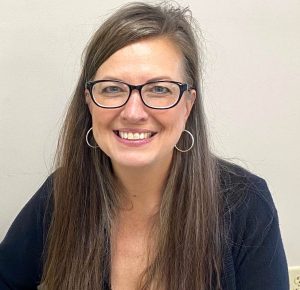Last Monday, Feb. 28, marked the 20th legislative day, and halfway point, of the Georgia General Assembly’s 2011 legislative session.
While we have already succeeded in passing legislation improving our early voting system, and amending our Fiscal Year 2011 state budget, there is still much left to do before we reach legislative day 40 and adjourn sine die. That was clear over the past two weeks, as the House passed multiple pieces of legislation addressing some of the most important issues facing our state.
I have written a great deal about the Immigration Reform and Enforcement Act of 2011 (HB 87), legislation I have authored, along with a number of my colleagues, to remove access to jobs, publicly funded benefits and other inducements that lure illegal aliens to Georgia.
I am happy to report that the House last week passed HB 87 by an overwhelming majority. The measure now moves to the Senate for consideration.
Last week the House also took up and passed HB 200, legislation to address the proliferation of human trafficking in Georgia. Hundreds of thousands of people, mostly young women, are trafficked every year, many of which are trafficked into sexual servitude. It has become a multi-billion dollar criminal enterprise in America and the fact that Atlanta has become one of the hubs for this heinous crime is truly a stain on our state.
This legislation targets human trafficking by providing for heightened penalties and gives law enforcement additional tools to investigate and prosecute individuals involved in this type of criminal activity. In addition, the measure expands Georgia’s forfeiture law so that it applies to those convicted of human trafficking to ensure all of the property and means used to commit these acts can be confiscated.
Two weeks ago, Governor Nathan Deal outlined his proposals to save Georgia’s HOPE Scholarship, Pre-K, and HOPE Grant programs, all of which are funded by the Georgia Lottery. Though the Helping Outstanding Pupils Educationally (HOPE) programs have seen overwhelming success and become trademarks of the state, their popularity continues to outpace lottery revenues. If something is not done this year, the HOPE and Pre-K programs that so many Georgians have come to depend on will be insolvent by 2013.
HOPE has truly become a victim of its own success. Since its creation in 1993, more than 1.2 million Georgians have received a HOPE scholarship or grant. The scholarship currently covers full tuition for Georgia residents who maintain a 3.0 grade point average (GPA) while attending a public college or university in the state. Qualifying Georgians attending a private college or university receive a $4000 scholarship for tuition.
Additionally, the scholarship provides a $150 book allowance each semester and pays mandatory student fees that averaging $420 a year.
Thanks to HOPE, Georgia has increased the number of students earning a college education, while also keeping our highest achievers in-state. One study estimates the college attendance rate among all Georgia 18- to 19-year olds increased by as much as 8 percentage points due to HOPE. More students than ever scoring in the top 10 percent on the SAT choose an in-state college.
The HOPE program also includes grants that pay tuition for Georgians seeking a technical certificate or diploma at one of the state’s 26 technical colleges. Thanks in part to the HOPE Grant, technical college enrollment increased 25 percent in 2010 alone. This has had a tremendous impact on our state’s workforce development needs. In fact, many businesses have touted HOPE as an incentive to locate and create jobs in Georgia.
To save these vitally important programs and preserve HOPE for the future, it is important that we quickly initiate changes that are necessary to preserve the financial stability of these programs. Gov. Deal, Speaker Ralston, Lt. Gov. Cagle, and other state leaders have worked together in a bipartisan effort to do just that.
After weeks of discussion, the House passed HB 326 last week. Under HB 326, next year, merit-based HOPE scholarship students attending public colleges and universities, as well as technical college students, will receive 90 percent of 2011 tuition amounts. HOPE scholarship students attending private colleges and universities would receive $3,600 for tuition.
The HOPE Scholarship will continue to require a 3.0 GPA. The plan also creates the Zell Miller Scholarship, which will offer full tuition to Georgia’s public colleges and universities to students who graduate from high school with a minimum 3.7 GPA and 1200 on the SAT or 26 on the ACT.
It is a difficult issue but we must act this year to save HOPE and this solution spreads the sacrifice of these changes across every educational program funded by the lottery.
As we move forward in the remaining weeks of the legislative session, please do not hesitate to call on me with any questions or concerns. I want to know how you and your family feel about issues concerning the future of Georgia. As always, thank you for allowing me to serve as this great community’s representative at the state Capitol.
[Rep. Matt Ramsey (R-Peachtree City) was first elected to the District 72 post in December 2007. He is a law partner with Warner, Hooper, and Ramsey, P.C., in Peachtree City. His email is [email protected].]












Leave a Comment
You must be logged in to post a comment.